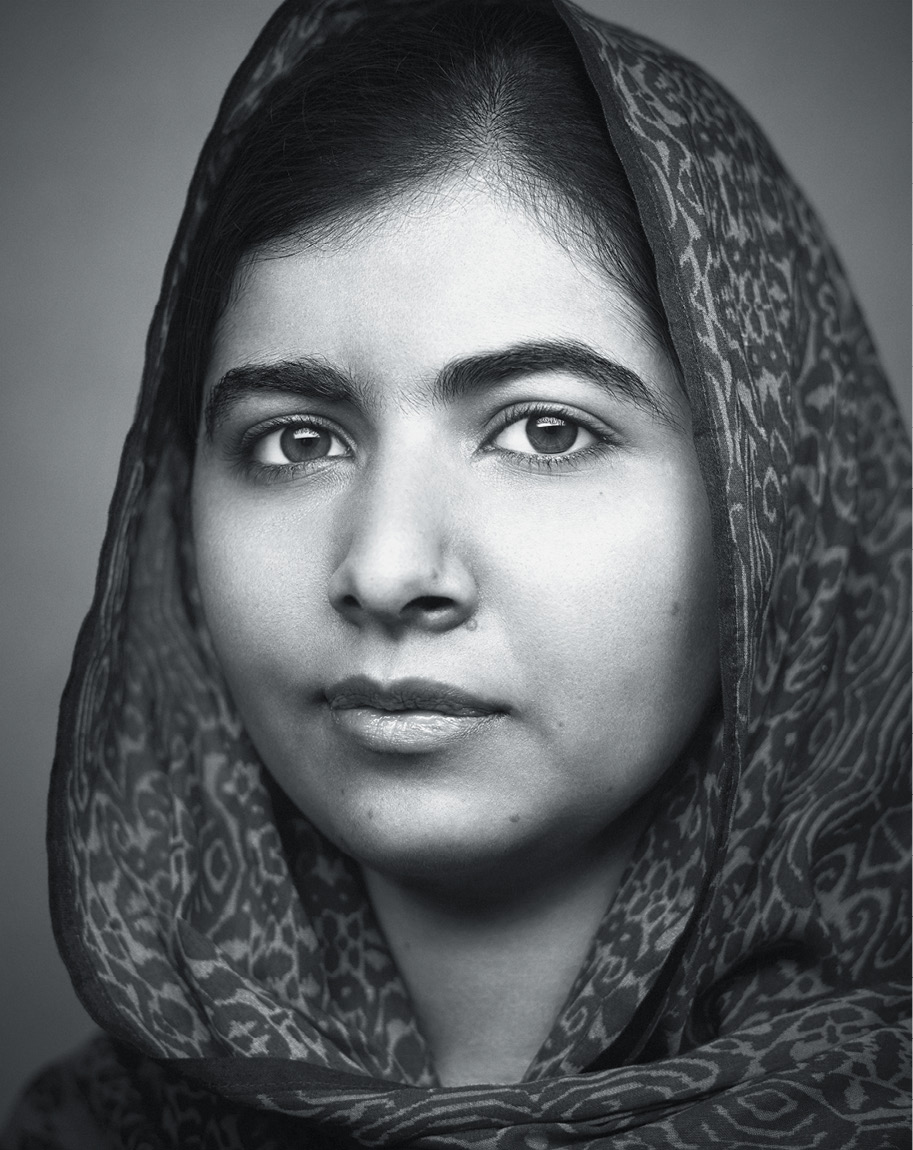Malala Yousafzai

Hillary and Chelsea
One of the women whose story has stuck with us since we first heard her name is Malala Yousafzai, the young Pakistani woman who was shot in the head in 2012 by Taliban fighters for her conviction that girls deserved to go to school. After surviving the shooting, she went on to finish high school and attend university, and continues to speak out about the difference that education can make in the lives of girls everywhere.
Malala’s father, Ziauddin Yousafzai, raised his daughter to be brave and determined. Ziauddin is an educated man who could have left Pakistan with his family. Instead, he used his education for the advancement of his community in the Swat Valley in Northwest Pakistan. He realized the greatest need was to educate women and girls, so he started a girls’ school, despite the local Taliban banning girls from getting an education. One of his students was his daughter, Malala.
“They thought that the bullets would silence us. But they failed. And then, out of that silence came thousands of voices. Weakness, fear, and hopelessness died. Strength, power, and courage were born.”
—MALALA YOUSAFZAI
By the time she was two and a half years old, she was sitting in classrooms with ten-year-olds, following along, and loving every minute. From the moment she learned to read, she loved books. She carried a Harry Potter book bag and read biographies of Benazir Bhutto, the late prime minister of Pakistan and the first woman in modern history to lead a Muslim nation, and Barack Obama. She often quoted a line from her favorite book, The Alchemist: “When you want something, all the universe conspires in helping you to achieve it.”
When the Taliban began shutting down the schools in Pakistan, as they had done years earlier in Afghanistan, Malala’s father kept speaking out. His young daughter began speaking out as well, saying that she had a right to hold a pencil in her hand, to learn to express her views and dreams just like anybody else. She went to protests with her father, once running up to a local reporter and asking to be on his show. “All I want is an education, and I am afraid of no one,” she told his audience. At eleven years old, she gave a speech in front of the national press called “How Dare the Taliban Take Away My Basic Right to an Education.” She blogged anonymously for BBC Urdu about life under Taliban rule. Later, in a TED Talk, her father said: “Don’t ask me what I did, ask me what I did not do. I did not clip her wings.”
When the Taliban couldn’t shut down the school because her father was so courageous, and when they couldn’t shut up Malala because she had learned to speak for herself, they boarded her school bus and tried to kill her. Nine months later, still recovering from her injuries, she was back in school and speaking at the UN. For strength and good luck, she wore a shawl that had belonged to Benazir Bhutto. It was Malala’s sixteenth birthday; as she spoke, her family watched proudly from the audience.
Today the Malala Fund raises money to support girls’ education around the world. Malala is a student at Oxford University, where she is learning to balance school and work, occasionally starting assignments the night before they’re due after staying up too late talking with friends, and championing the rights of the 130 million girls around the world who are out of school. Malala believes there has never been a more opportune time to take up the cause. “Everywhere you go today,” she wrote in an essay for Vogue, “you see feminist T-shirts and hashtags—‘The future is female,’ ‘Girl Power,’ ‘Who runs the world?’—but if we really believe this, we need to support girls on the front lines of this fight.… Whether you’re a feminist or an economist—or just a person who wants to live in a better world—you should want to see all girls in school.” She concluded with her trademark optimism and certainty: “If one girl with an education can change the world, just imagine what 130 million can do.” If Malala can continue finding new ways to champion girls everywhere, so can we all.